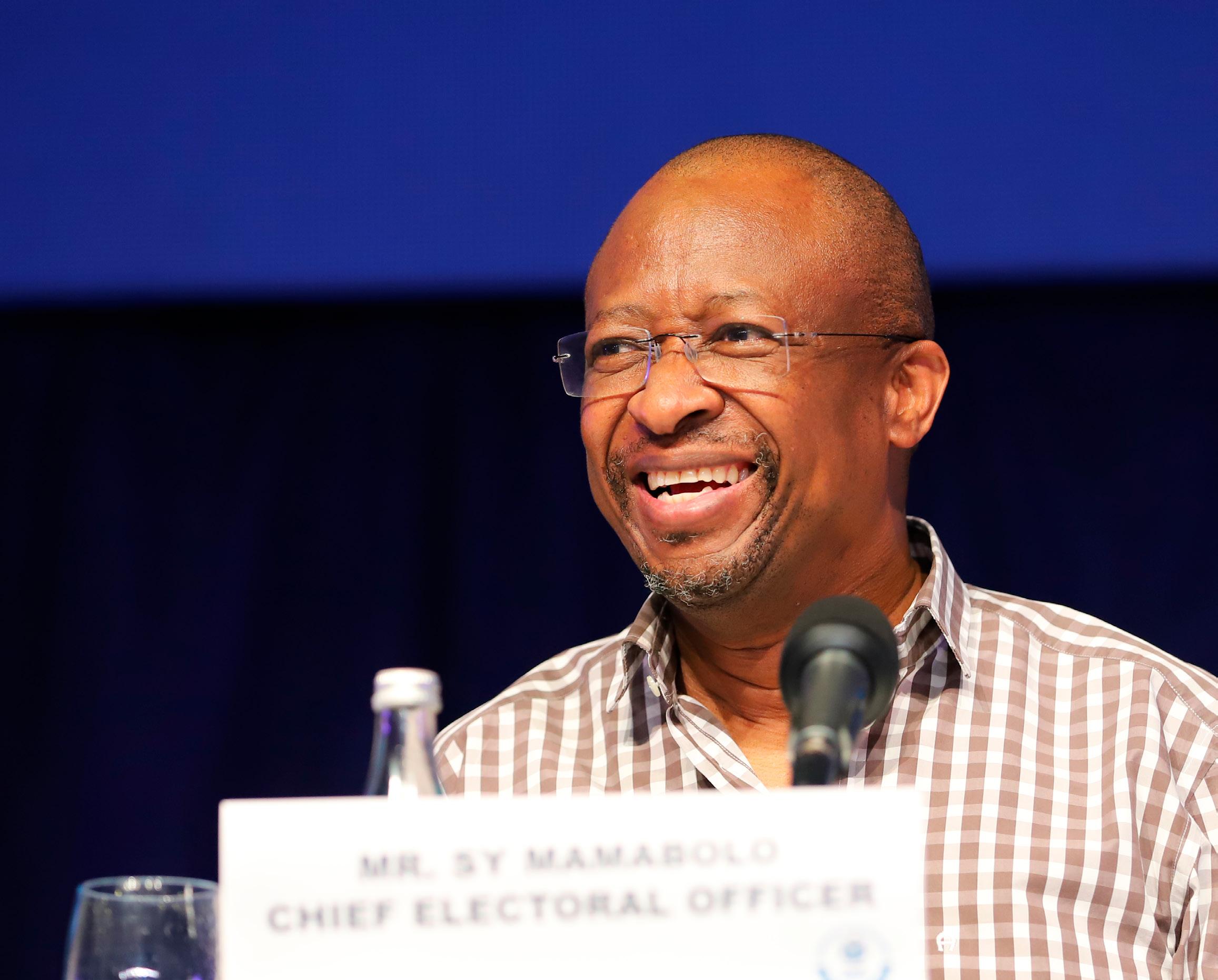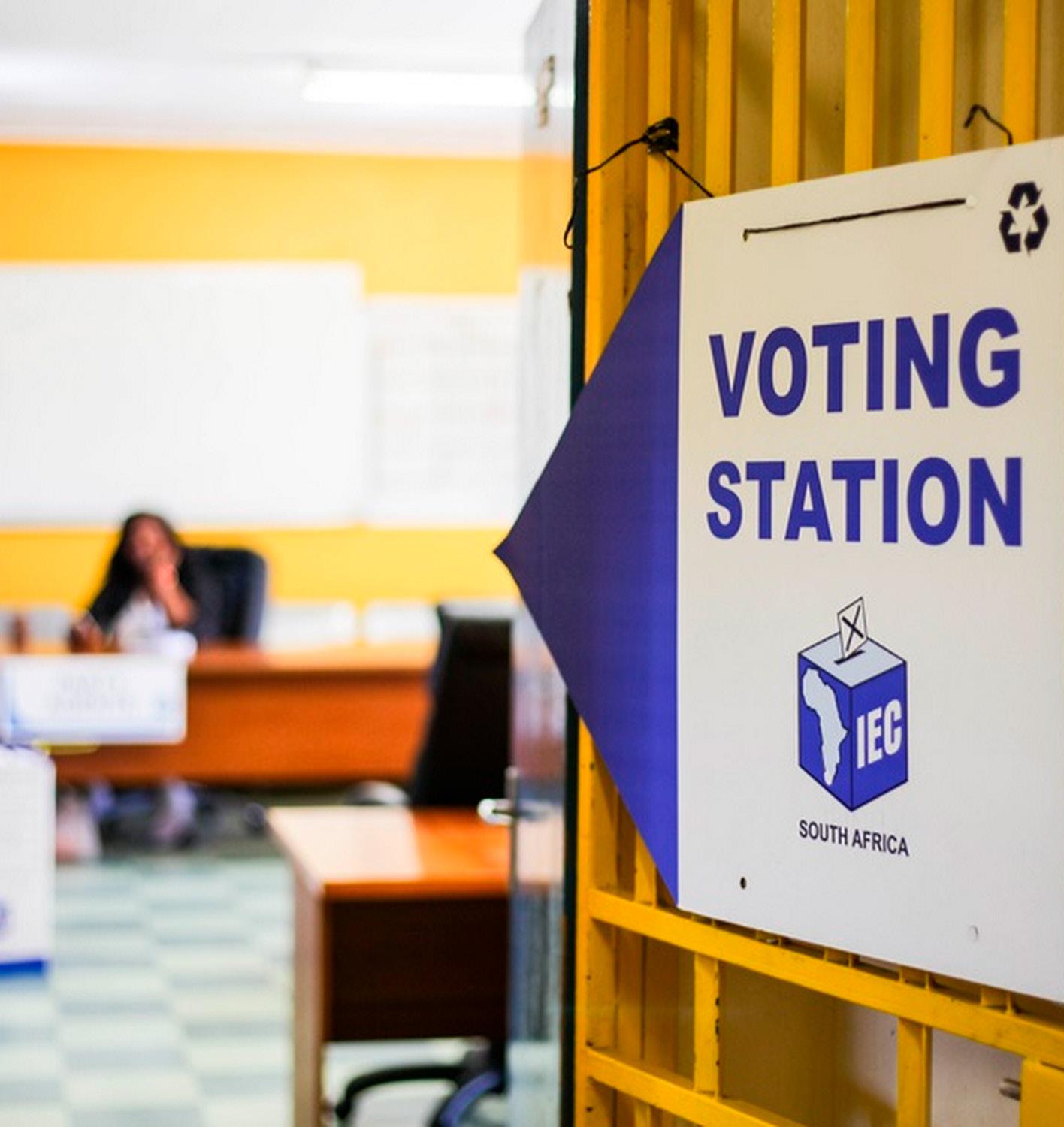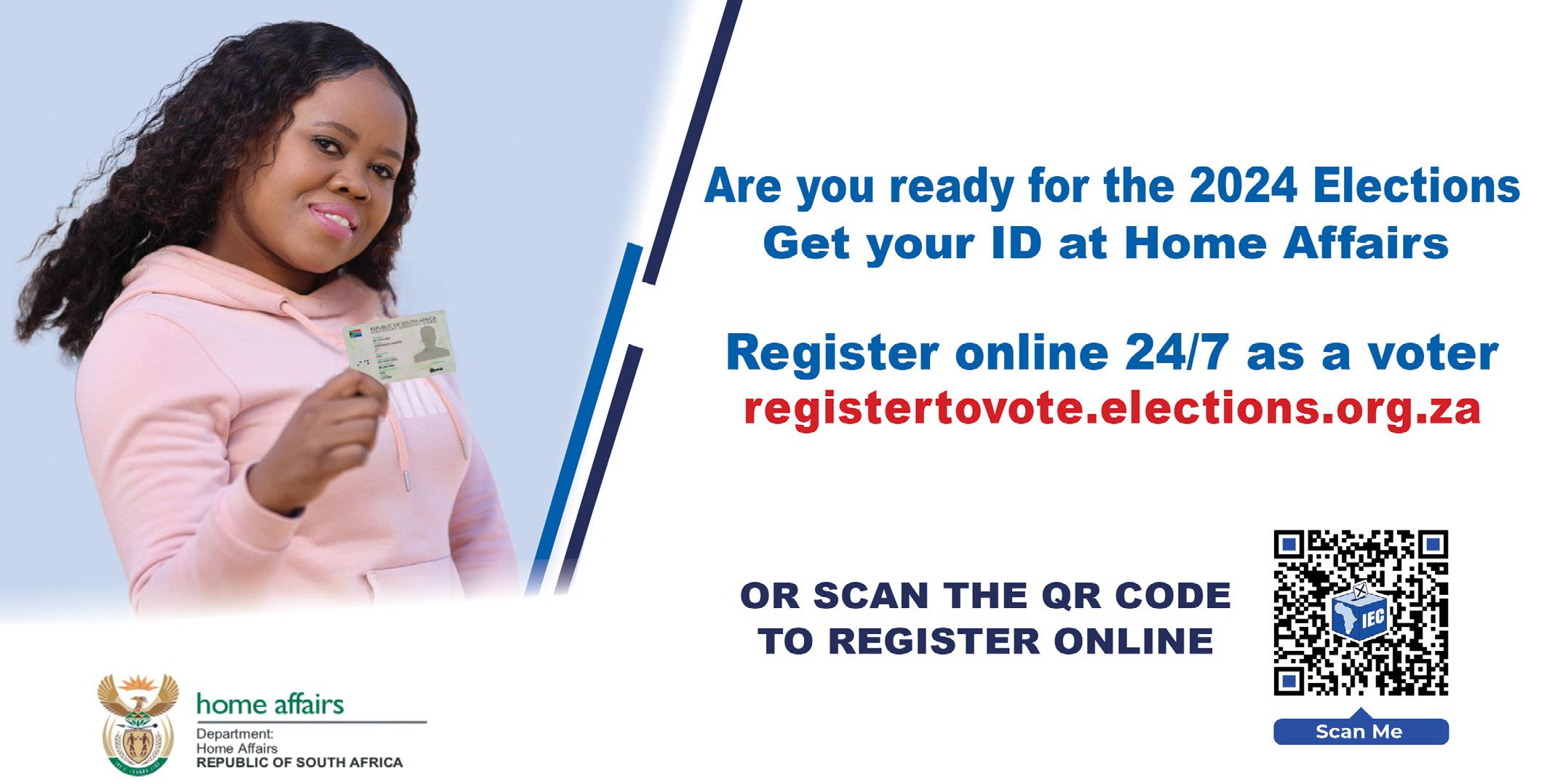
7 minute read
COUNTDOWN TO REGISTRATION WEEKEND BEGINS
South Africa celebrates a historic 30 years of democracy in 2024, when it will hold its seventh democratic national and provincial elections sometime between May and August.
The elections will also be historic for another reason: independent candidates will contest the national elections for the first time.
Sy Mamabolo, Chief Electoral Officer (CEO) of the Electoral Commission (IEC) of South Africa, says that the Chapter 9 institution is making good progress with its preparations for holding the 2024 general elections. “We are on the right side of the curve in terms of the project planning process for the 2024 elections. Our planning timeframe of 18 to 24 months puts us less than a year away from the elections, and our plans are taking shape,” Mamabolo explains.
A crucial aspect in the build up to the elections is the voter registration drive. The IEC announced earlier this year that the first voter registration weekend would take place on 18 and 19 November 2023. This event will see the activation of nearly 24 000 voting stations countrywide where voters can register in person and update their addresses on the voters’ roll.
The reason for this mammoth undertaking is to ensure that a registration facility is made available in each community, meaning that nobody will have to travel a significant distance to exercise their right to be on the voters' roll.
“A voter registration weekend, in comparison with online registration or registering at a local IEC office, is an equaliser of opportunity because everybody is placed in the same position. As a voter, you wake up, walk or drive to your nearby voting station, and register,” says Mamabolo.
A second voter registration weekend will follow in early 2024, but the date will only be announced once President Cyril Ramaphosa officially sets the date for the 2024 elections.
Registering voters is a critical step in election preparations, especially for citizens aged 18 and older who are eligible to vote, because it:
• Ensures that voters know the location of their voting station;
• Assures voters that they can verify their voters’ roll particulars and will be able to participate in the forthcoming elections;
• Enables voters to actively participate in the elections by nominating candidates and supporting the nomination of a candidate;
• Enables a voter to be nominated and stand as a candidate.
Voters who have internet access can register (or update their voters’ roll address) online anywhere, anytime up until the proclamation of the election, which is expected soon after the President announces the election date.
The online voter registration portal available at www.registertovote. elections.org.za was launched in 2021 during the COVID-19 pandemic as an additional method of registration.
Mamabolo says that some 750 000 voters have used the online registration portal since its inception, a number which he is hoping to build on for the forthcoming elections.
“There are many ways of registering as a voter. We urge citizens to register as voters using the online platform which is available 24/7.
Citizens without internet access or data, can get a family member or friend to assist with registering them online, or they can register at their local IEC office, or visit their voting station on the weekend of 18 and 19 November, between 8am and 5pm on both the Saturday and Sunday.
In terms of South African citizens abroad who wish to vote, Mamabolo says that a voter registration weekend will take place at various diplomatic missions, including consulates, in addition to the online voter registration portal.
"Before year-end, a voter registration weekend will be held for citizens abroad, while they too will have access to the voter portal. London in the United Kingdom always has the highest concentration of citizens wishing to vote, followed by Dubai in the United Arab Emirates, and The Hague in the Netherlands. On average, some 20 000 citizens vote in South African missions abroad in national elections." Mamabolo adds.
Mamabolo calls on municipalities to support voter registration for the 2024 elections by:
• Supporting the campaigns of voter registration drives by the Electoral Commission; >
• Encouraging citizens to register to vote by mounting their own voter education and information campaigns;
• M aking free wirele ss connectivity available, to facilitate online voter registration.
“The inherent benefit for the municipalities is that the voters’ roll of the 2024 general elections will be the basis for the determination of council seats, and the determination of ward boundaries. We call on municipalities to support the call for citizens of all ages, especially young first-time voters, to register to vote,” he adds.
What’s new in the 2024 Elections?
The Electoral Amendment Act, 1 of 2023, was signed into law by President Ramaphosa in April.
The Act is an amendment of South Africa's Electoral Act of 1998 and enables independent candidates to contest national and provincial elections. The basis for the amendment was a Constitutional Court judgement of 2020.
“Practically what this means is that, prior to 2024, voters only used two ballot papers – one a national ballot and the other a provincial ballot.
In these elections, that changes: voters will be presented with three ballot papers – two ballots for the National Assembly and one ballot for

The number of ballot papers to be printed has increased by 50% and the number of days available to print the ballot papers (following the closure of nominations) has not increased, so there is that logistical complexity that has been introduced by the new Act.”
Two civil society organisations are challenging aspects of the revised electoral system, in particular, the election deposit amounts and the number of endorsement signatures, regarded as barriers to entry for independent candidates and unrepresented parties. They are also challenging the distribution of seats in the National Assembly, as well as the replacement of elected officials who wish to withdraw mid-term. Judgement on the Constitutional Court matter, the hearing for which was held in late August 2023, is anticipated any day now.
The reason being, as Mamabolo clarifies, that the outcome of such challenges will have a significant impact on the IEC’s election preparedness. “Our candidate nomination system, which is an internally-coded business application, has had to be extensively revised to accommodate independent candidates. Similarly, the results system, which calculates, captures, and processes the results, is undergoing a complete rewrite.”
The next major challenge for the IEC is informing and educating would-be independent candidates, as well as voters, about the new electoral dispensation. For this to be successful, Mamabolo says that a mixed approach is required.
An on-the-ground education drive will be carried out by the IEC’s Democracy Education Facilitators, who will hold community workshops in townships and villages, as well as at existing congregations within communities such as churches, football associations, youth groups, and women groups. This, says Mamabolo, provides a “human element to the delivery of civic and democracy education.”
“Our research tells us that TV and radio remain the most credible sources of news in the country, so we will also be running voter education programmes on these media."
The third avenue for delivery is social media platforms. A significant proportion of young persons converse and engage politically on social media, hence the dedicated civic education component that is being delivered through social media,” he adds.
The IEC is launching its election campaign in October, but it has already kicked off with a ‘Get your ID’ campaign in collaboration with the Department of Home Affairs, and has an education campaign on the Electoral Amendment Act under way on its social media platforms.

The final element of its education drive pertains to stakeholder liaison, sessions which are needed to ensure that business, civil society organisations, community and religious organisations and the media, among many other social groupings, are up to speed on the electoral process and that their members are appropriately mobilised for election participation.
“As the IEC, we need to provide voter education and run campaigns that capture the imagination of the country so that every citizen of age is aware of the fact that they can and should vote in the 2024 elections. This is what we need to secure a prosperous future for South Africa, so stay tuned,” Mamabolo concludes.










